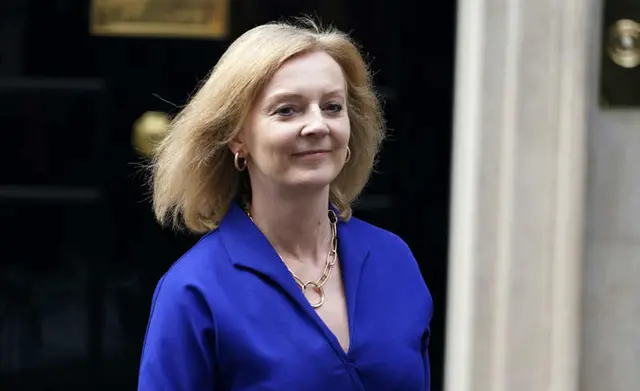Iranian President Ebrahim Raisi faces a “last chance” to negotiate a return to the 2015 nuclear deal following an abortive meeting last week that has all but convinced U.S. and European officials that the regime has no sincere intention to rehabilitate the pact.
“Negotiations resume tomorrow in Vienna. This is really the last chance for Iran to sign up,” British Foreign Secretary Liz Truss told a Chatham House audience on Wednesday. “And I strongly urge them to do that because we are determined to work with our allies to prevent Iran [from] securing nuclear weapons.”
Iranian officials returned to Vienna last week for a seventh round of “indirect talks” with the United States, mediated by the other signatories of the nuclear deal, but they used the long-awaited meeting to renounce “almost all of the difficult compromises” struck during the previous six rounds. They replaced those tentative agreements with a maximalist statement that the U.S. must not return unilaterally to compliance with the nuclear deal, known as the Joint Comprehensive Plan of Action, but lift other unrelated sanctions imposed in recent years.
“They have put on the table, when it comes to sanctions relief, demands that go well beyond the scope of the JCPOA,” a senior State Department official said last week after European officials announced the Iranian demands. “If Iran wants us to go beyond that, then, of course, we're talking about a different deal, and Iran would have to go beyond what it did at the time of the JCPOA.”
European officials dismissed those Iranian demands out of hand last week, but this week’s conversations will show whether Tehran took that rebuke to heart.
“We have a good base from which to operate, and it is certainly our hope that Iran will return willing and able to operate from that base to see to it, to test the proposition as to whether we can in fact achieve a mutual return to compliance with the JCPOA,” State Department spokesman Ned Price told reporters Wednesday.
The talks have been mediated by France, Germany, and the United Kingdom because U.S. and Iranian officials couldn’t agree on a process by which to launch direct negotiations. The three Western European powers signed the original nuclear deal and worked to preserve its core structure in defiance of the U.S. withdrawal under former President Donald Trump, but they have grown pessimistic about Iran’s willingness to restore the deal.
"The elements ... are not very encouraging," French Foreign Minister Jean-Yves Le Drian said Tuesday. "We have the feeling the Iranians want to make it last, and the longer the talks last, the more they go back on their commitments ... and get closer to capacity to get a nuclear weapon.”
Without articulating any specific deadline, Secretary of State Antony Blinken has stated repeatedly that U.S. officials won’t subject themselves to such a manipulative process.
“It will not always be in our interest to seek a return to the JCPOA,” Price said during Wednesday’s press briefing. “Eventually, we may conclude that either the Iranians aren’t serious and won’t be serious going forward, or the technological clock will have run out and the advancements that the Iranians are making no bones about making will outweigh the advantages that a mutual return to compliance with the JCPOA would convey.”
Price still declined to echo Truss’s statement that this weekend marks a “last chance” for Iran, but he made clear that U.S. and European officials won’t waste time mulling outlandish proposals.
“We should know in pretty short order if the Iranians are going and returning to negotiate in good faith,” he said. “So I don’t think you will see a long lag between the resumption of this round and when the United States and our allies and partners are in a position to judge whether the Iranians have returned in a position and with a willingness to engage in substantive negotiations.”
(MSN)
 简体中文
简体中文

